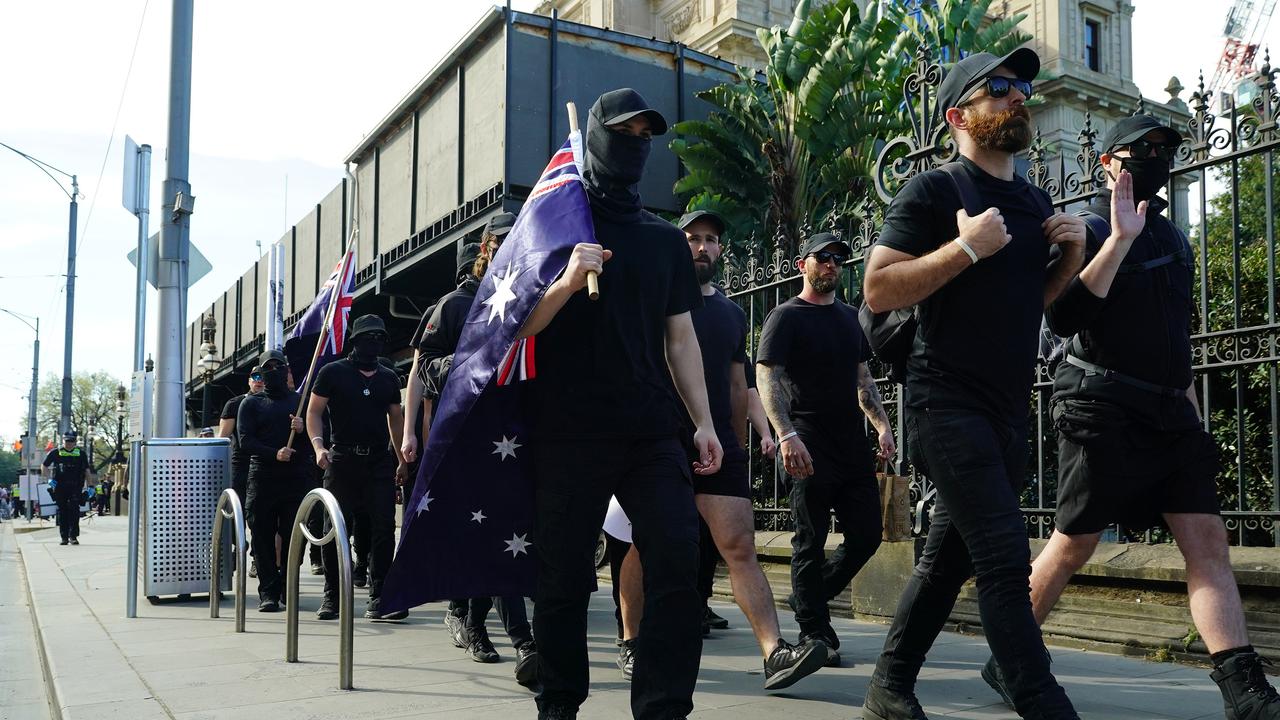‘Neo-Nazi’ booing of welcome to country at Melbourne Anzac Day dawn service condemned has sparked widespread outrage and concern across Australia. Anzac Day holds profound significance in the nation’s history, representing a day of remembrance for those who served and sacrificed in wartime. The Welcome to Country ceremony is an important aspect of this commemoration, recognizing and honoring the ongoing connection of Indigenous Australians to the land. This incident not only undermines the spirit of Anzac Day but also raises critical questions about the respect afforded to Indigenous cultures in national observances.
The booing incident during the Melbourne Anzac Day dawn service caught many by surprise, igniting heated discussions and reactions across social media and news platforms. Public figures and organizations have condemned the act, emphasizing the need for greater awareness and respect towards Indigenous communities. The event has brought to light the persistent issues of racism and inequality that continue to affect Australia’s social fabric.
Background of Anzac Day and Welcome to Country

Anzac Day, observed on April 25, is a significant national day of remembrance in Australia and New Zealand that commemorates the members of the Australian and New Zealand Army Corps (ANZAC) who served and died in wars, conflicts, and peacekeeping operations. The day marks the landing at Gallipoli in 1915 during World War I, which has become a symbol of courage and sacrifice. Recognizing this history is not only important for honoring veterans but also for reflecting on the broader implications of military service and the impacts of war on society.
The Welcome to Country ceremony serves as a vital recognition of the traditional custodians of the land where commemorations occur. It is often performed by a local Indigenous elder and involves acknowledging the Indigenous peoples’ enduring connection to the land and their cultural heritage. This ceremony reinforces respect for Indigenous culture and provides a framework for reconciliation, acknowledging the historical injustices faced by First Nations peoples.
Significance of Indigenous Recognition
Indigenous recognition during national commemorations is essential for fostering an inclusive national identity. Incorporating the Welcome to Country in events like Anzac Day serves multiple purposes:
- Recognition of History: Acknowledging the historical presence and contributions of Indigenous Australians enriches the narrative of Australian history, emphasizing that it is not solely defined by colonial experiences.
- Promotion of Reconciliation: Including Indigenous voices and perspectives in national ceremonies promotes healing and reconciliation efforts between Indigenous and non-Indigenous Australians.
- Cultural Preservation: The Welcome to Country ceremony highlights the importance of preserving and respecting Indigenous cultures, languages, and traditions, ensuring they are recognized as integral to the Australian identity.
The integration of these elements into national commemorations reflects a commitment to inclusivity and respect for all Australians, reinforcing the idea that national memory encompasses diverse experiences and histories.
The Incident of Booing and Public Reactions: ‘Neo-Nazi’ Booing Of Welcome To Country At Melbourne Anzac Day Dawn Service Condemned
During the Melbourne Anzac Day dawn service, a significant incident occurred that drew widespread attention and condemnation. As a Welcome to Country was delivered, a group of individuals, identified as Neo-Nazis, began to boo and shout derogatory remarks, creating a moment of dissonance in a solemn ceremony meant to honor Australian and New Zealand servicemen and women. This disruption not only marred the respectful atmosphere of the event but also sparked outrage within the community and across various media platforms.
The incident quickly garnered a flurry of reactions from the public, with many expressing their shock and disapproval. Social media platforms became a battleground for discussions, as users shared videos and commentary about the booing, leading to an outpouring of support for the Welcome to Country. Mainstream media outlets also covered the story extensively, highlighting the contrasting sentiments surrounding Anzac Day observances and the specific aim of reconciliation with Indigenous Australians.
Public Response and Condemnation
The reactions to the booing incident were multifaceted, with numerous organizations and public figures voicing their condemnation. Here is a summary of the key responses:
-
Victorian Premier Daniel Andrews stated, “There is no place for racism in our society, and this behavior is a stark reminder that we must remain vigilant against hate.”
-
The Australian Human Rights Commission released a statement emphasizing the importance of cultural recognition during significant national events, calling the booing “deeply disrespectful.”
-
Indigenous leaders and activists expressed their disappointment, urging for unity and respect during such commemorative occasions. One noted, “Anzac Day should be a moment for reflection, not division.”
-
Various social media influencers and commentators used their platforms to denounce the actions, trending hashtags such as #RespectTheWelcome and #ANZACDaySolidarity to promote inclusive remembrance.
-
Numerous veterans’ organizations condemned the booing, asserting that Anzac Day should honor all Australians, including Indigenous contributions to the military.
The incident not only highlighted existing tensions within Australian society but also served as a catalyst for discussions on the importance of acknowledging and respecting Indigenous culture, especially in the context of national commemorative events.
Impact on Indigenous Communities and National Discourse

The booing of the Welcome to Country at the Melbourne Anzac Day dawn service has significant ramifications for Indigenous communities in Australia. It not only represents a dismissal of Indigenous culture and voice but also highlights ongoing racial tensions within the broader Australian society. Such incidents can have profound emotional and psychological effects on Indigenous peoples, as they are reminded of the historical and systemic discrimination they have faced.
The incident also serves as a flashpoint in national conversations about racism and equality. It accentuates the divide between those advocating for recognition of Indigenous rights and those who resist such movements. It presents a stark reminder of the work yet to be done in fostering a truly inclusive society.
Effects on Indigenous Communities
The booing incident can lead to several adverse effects on Indigenous communities, including:
- Emotional Impact: Such actions can instigate feelings of alienation and distress among Indigenous peoples, as they witness an overt rejection of their cultural protocols.
- Heightened Tensions: Incidents like this often exacerbate existing racial tensions, making it more difficult for meaningful dialogue to occur between Indigenous and non-Indigenous Australians.
- Community Solidarity: On the flip side, such events can galvanize Indigenous communities, leading to increased activism and solidarity in the face of disrespect.
- Visibility of Issues: This situation brings Indigenous issues to the forefront of public discourse, forcing citizens to confront often uncomfortable truths about racism in Australia.
Broader National Implications
The booing incident influences the national conversation about racism and equality, shaping public sentiment in various ways.
- Increased Awareness: The negative response to the Welcome to Country raises awareness about the need for education on Indigenous rights and culture.
- Polarization of Public Opinion: Surveys indicate a potential shift in public sentiment, with increased division between those who support Indigenous recognition and those who oppose it.
- Influence on Policy: Such incidents can affect policy discussions, as they highlight the challenges in achieving equality and recognition for Indigenous Australians.
“This incident serves as a stark reminder that while progress has been made, there is still a long way to go in the journey towards reconciliation and equality in Australia.”
A comparison of public sentiment before and after the booing incident reveals a notable shift. Prior to the event, surveys indicated a growing support for Indigenous rights and reconciliation efforts. However, the booing has polarized opinions, with subsequent polls indicating an increase in those who express skepticism regarding Indigenous recognition initiatives. This shift underscores the complexities surrounding national conversations on race, identity, and equality in Australia.
Strategies for Promoting Understanding and Respect

Promoting understanding and respect for Indigenous cultures is essential in fostering a more inclusive society. Initiatives that encourage dialogue, education, and community involvement can help bridge cultural gaps, ensuring that Indigenous voices are heard and celebrated. This section Artikels community initiatives, educational programs, and available resources aimed at promoting respect for Indigenous cultures.
Community Initiatives for Cultural Respect, ‘Neo-Nazi’ booing of welcome to country at Melbourne Anzac Day dawn service condemned
Community initiatives play a vital role in fostering a deeper appreciation for Indigenous cultures. Engaging local communities through events, workshops, and partnerships can create lasting change. Initiatives may include:
- Cultural Festivals – Organizing events that showcase Indigenous art, music, and traditions allows community members to experience and learn about Indigenous cultures firsthand. These festivals can feature traditional performances, storytelling, and food, promoting cultural exchange.
- Dialogue Circles – Creating safe spaces for open discussions between Indigenous and non-Indigenous community members helps to build mutual understanding. These circles can facilitate conversations about history, cultural practices, and contemporary issues faced by Indigenous peoples.
- Mentorship Programs – Establishing mentorship opportunities between Indigenous community leaders and youth can strengthen cultural connections. By learning directly from Indigenous mentors, participants can gain insights into cultural values, practices, and the importance of heritage.
Educational Programs in Schools
Implementing educational programs in schools is crucial for promoting awareness and understanding of the Welcome to Country and Indigenous cultures. Such programs should aim to incorporate Indigenous perspectives into the curriculum. Effective strategies include:
- Inclusive Curriculum Development – Schools should collaborate with Indigenous communities to develop a curriculum that reflects Indigenous history, culture, and contributions. Incorporating Indigenous authors, stories, and teachings can enrich students’ learning experiences.
- Workshops and Guest Speakers – Inviting Indigenous speakers to share their experiences and knowledge can provide students with a personal connection to Indigenous issues. Workshops can focus on cultural practices, language, and the significance of ceremonies like the Welcome to Country.
- Field Trips to Landmarks – Organizing educational trips to culturally significant sites allows students to learn about Indigenous history and heritage in a tangible way. Visiting these locations can foster respect and appreciation for Indigenous peoples’ connections to the land.
Resources and Support Networks
For individuals seeking to deepen their understanding of Indigenous issues, a variety of resources and support networks are available. These resources aim to educate and empower those interested in fostering respect for Indigenous cultures. Notable resources include:
- Books and Literature – A wealth of literature exists that highlights Indigenous perspectives and histories. Recommended readings include works by Indigenous authors that discuss cultural themes, historical experiences, and contemporary issues.
- Online Courses and Webinars – Various organizations offer online educational courses focusing on Indigenous rights, history, and cultural practices. These programs often feature Indigenous educators and provide valuable insights into current topics.
- Community Organizations – Many local and national organizations work towards Indigenous advocacy and education. Connecting with these organizations can provide individuals with opportunities to engage in activities that support Indigenous rights and cultural respect.
In recent news, a chaotic scene unfolded in Darlington town centre where a street brawl led to the detention of three individuals. The incident has raised concerns about public safety and the need for community engagement. For more on the details, check out this article on the situation: Three detained after ‘street brawl’ erupts in Darlington town centre.
Meanwhile, in the sports world, the Clippers secured a solid victory against the Nuggets with a final score of 117-83 on April 24, 2025. This game showcased the Clippers’ skill and teamwork, reflecting their strong performance this season. For a detailed breakdown of the match and player highlights, visit the recap here: Clippers 117-83 Nuggets (Apr 24, 2025) Final Score.